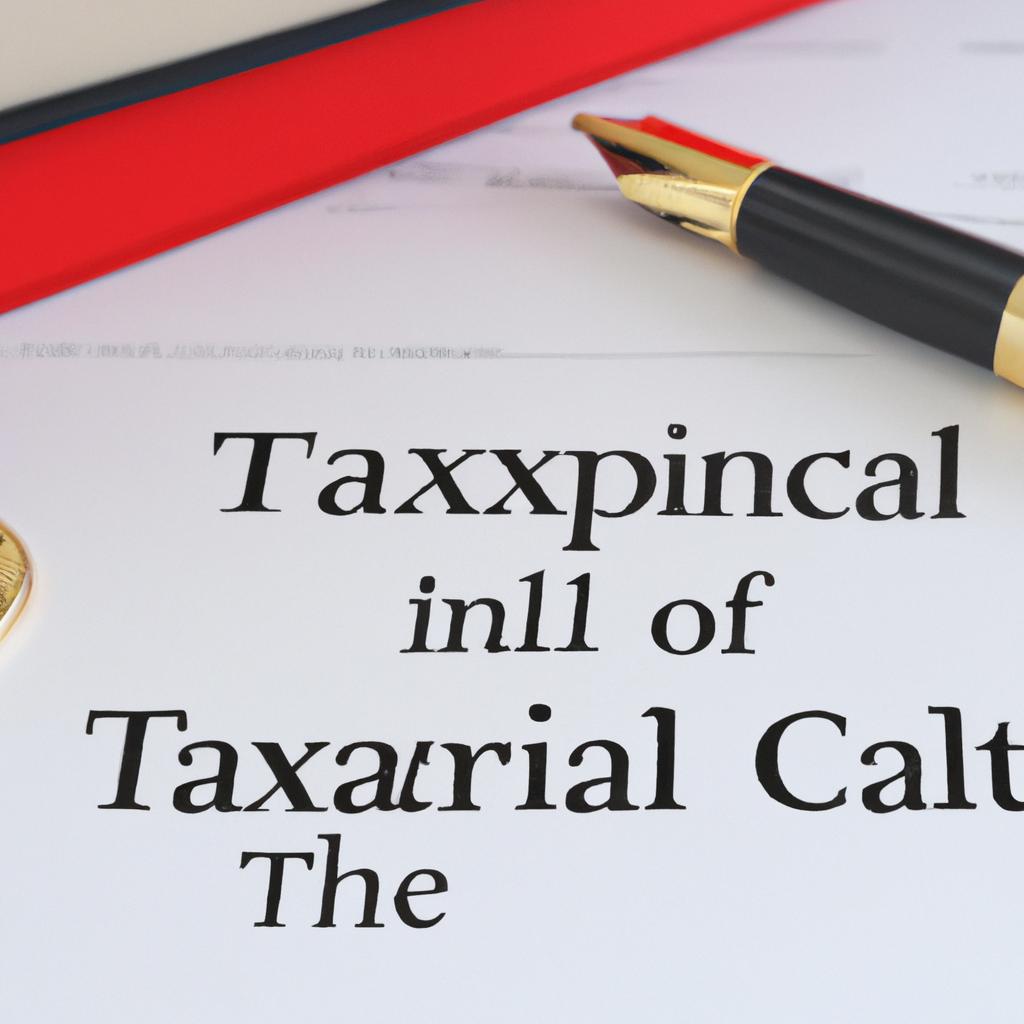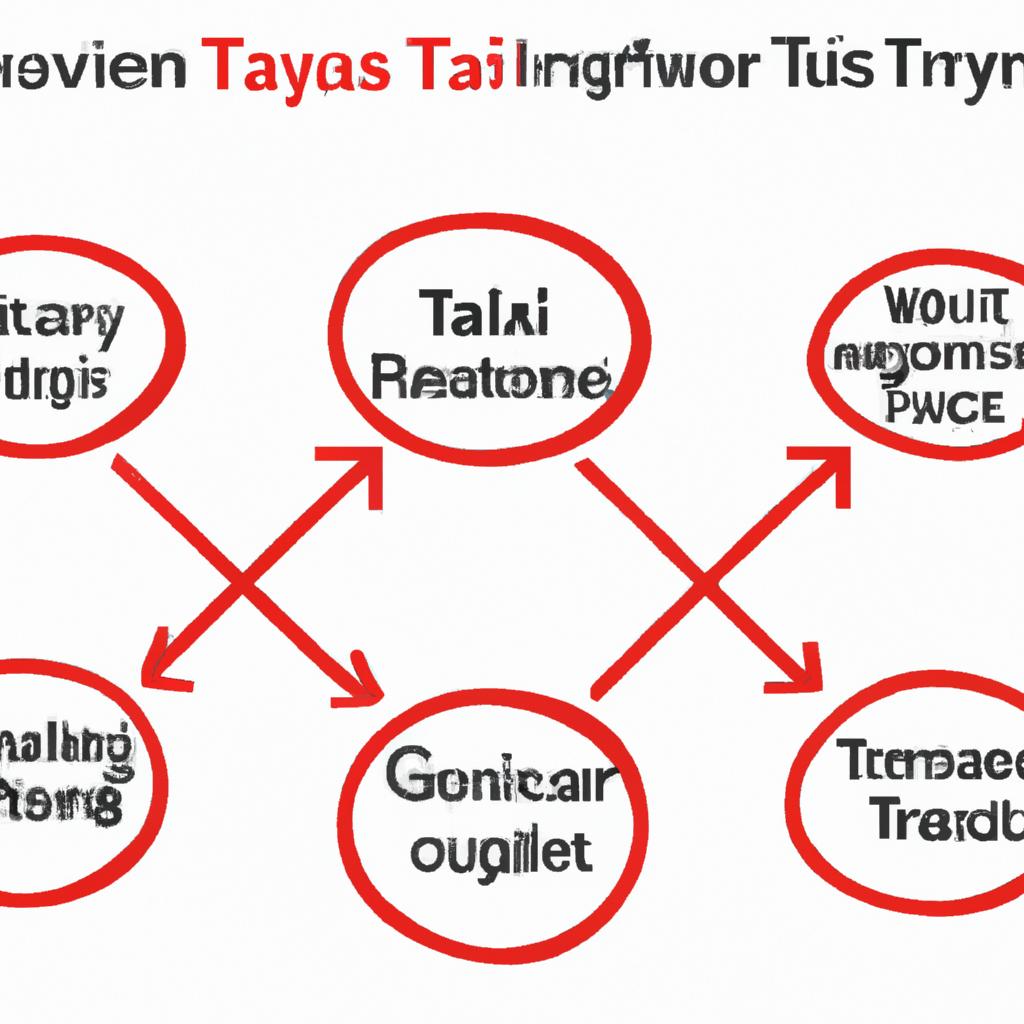In the intricate world of estate planning and trust administration, the question of taxation often arises, particularly in relation to capital gains. As experienced legal professionals at Morgan Legal Group in New York City, we understand the complexities involved in navigating the tax implications of trusts. In this article, we will delve into the question: Does a trust pay taxes on capital gains? Join us as we explore the nuances of trust taxation and provide valuable insights for those seeking clarity on this matter.
Understanding the Tax Implications of Capital Gains for Trusts
When it comes to trusts and capital gains, one common question that arises is whether a trust is required to pay taxes on capital gains. The answer to this question depends on the type of trust in question and the distribution of the capital gains. Here are some key points to consider:
- Revocable Trusts: Revocable trusts do not pay taxes on capital gains as all income and expenses are reported on the grantor’s personal tax return.
- Irrevocable Trusts: Irrevocable trusts are separate taxable entities and may be subject to capital gains taxes on any income generated within the trust. However, if the capital gains are distributed to beneficiaries, the beneficiaries may be responsible for paying the taxes on those gains.
It is important to consult with a knowledgeable estate planning attorney to understand the specific tax implications of capital gains for trusts and to ensure that you are in compliance with all relevant tax laws and regulations.

Key Factors Influencing Whether a Trust Pays Taxes on Capital Gains
Factors Affecting Tax Payment on Capital Gains by Trusts:
- Types of Trust: Different types of trusts have varying tax implications. Revocable trusts are typically taxed the same as individual taxpayers, while irrevocable trusts are taxed separately.
- Income Distribution: Trusts that distribute income to beneficiaries generally reduce tax liability, as the beneficiaries are then responsible for paying taxes on the distributed income.
- Residency of Trust: The residency of the trust can affect tax obligations, as trusts established in states with no income tax may have lower tax liabilities on capital gains.
Other Influential Factors on Taxation for Trusts:
- Duration of Trust: The length of time a trust has been in existence can impact tax obligations, with longer-standing trusts potentially having accumulated greater capital gains.
- Investment Strategy: The types of investments held by the trust can affect capital gains and tax liabilities, with certain investments potentially leading to higher tax burdens.
- Trust Distribution: How and when a trust distributes assets or income can impact tax liabilities, as distributions may trigger capital gains taxes for the trust.

Strategic Considerations for Minimizing Tax Liabilities on Trust Capital Gains
When it comes to minimizing tax liabilities on trust capital gains, there are several strategic considerations to keep in mind. Trusts are subject to taxation on capital gains just like individuals are, but there are ways to minimize the amount of taxes owed. One important strategy is to take advantage of the step-up in basis at the time of the trust settlor’s death. This can help reduce the amount of capital gains taxes that are owed when the trust assets are sold.
Another key consideration is to carefully manage the timing of asset sales within the trust. By strategically selling assets that have appreciated in value over time, trustees can help minimize the amount of capital gains taxes that are owed. Additionally, trustees should consider utilizing tax-efficient investment strategies within the trust to help reduce the overall tax burden. By taking a proactive approach to managing trust capital gains, trustees can help ensure that the trust assets are preserved and protected for future generations.

Consulting with Experienced Estate Planning Attorneys to Optimize Tax Efficiency
When it comes to optimizing tax efficiency in estate planning, consulting with experienced estate planning attorneys is paramount. One common question that arises in this process is whether a trust pays taxes on capital gains. The answer to this question is not a simple yes or no, as it depends on several factors.
**Factors to consider include:**
– The type of trust involved
– The income generated by the trust
- The distribution of assets from the trust
– The tax laws in the jurisdiction where the trust is established
Q&A
Q: Does a trust pay taxes on capital gains?
A: It depends on the type of trust. Revocable trusts do not pay taxes on capital gains, as the income is reported on the grantor’s personal tax return. However, irrevocable trusts are separate taxable entities and may be subject to capital gains taxes.
Q: How are capital gains taxed for irrevocable trusts?
A: Capital gains earned by irrevocable trusts are typically taxed at the trust’s tax rate, which can be higher than individual tax rates. Trusts also have a lower threshold for the capital gains tax exemption compared to individuals.
Q: Are there any strategies to minimize capital gains taxes for trusts?
A: One strategy is to distribute income to beneficiaries, who may be in a lower tax bracket than the trust. This can help reduce the overall tax burden on capital gains. Additionally, considering tax-efficient investment strategies can also help minimize taxes on capital gains for trusts.
Q: Can capital gains be deferred for trusts?
A: Yes, trusts can utilize strategies like tax-deferred exchanges or installment sales to defer capital gains taxes. However, it’s important to consult with a tax professional to ensure compliance with tax laws and regulations.
In Summary
In conclusion, understanding the tax implications of capital gains in a trust is essential for proper financial planning. While trusts are generally subject to taxation on capital gains, there are nuances and exceptions to consider. Consulting with a tax professional or financial advisor can help navigate the complexities of trust taxation and ensure compliance with the law. By staying informed and seeking expert guidance, trustees can make informed decisions that optimize their financial goals and overall success. Remember, knowledge is power when it comes to managing trust assets and ensuring a secure financial future.

